


The shop in which I worked, J H Coath in The Avenue, West Ealing, was a cross
between Arkwright's in the popular BBC series with all the style of a Home & Colonial
store. Although we were not quite 'open all hours', we did sell everything from anvils to
Zebright (but no perishables!) from Monday to Saturday with half-day closing on
Wednesday.
Originally as a Saturday job, I gradually increased my time there by playing hooky and
working during my college free-periods. My duties were a cross between those of David
Jason's character 'Granville' and Ronnie Corbett's character from the famous 'Fork
Handles' sketch in The Two Ronnies comedy!
My day started with catching the route 55 bus that ran from Yeading, via Greenford, to
Ealing. The red London Transport open-platform, half-cab Routemaster buses were
operated on this route.
I can recall freezing in winter at the bus stop across the road from the White Hart pub at
Northolt waiting to go into Ealing. Then the warm, welcoming site of the double-decker
coming into view. The windows had condensation on the inside with some clear patches
where Brylcreem'ed hair had parted the mist. The upper deck allocated to smokers, I
forwent my morning 'Strand' cigarette and always rushed to the down stairs front seats
to warm my feet on the transmission tunnel, and remember watching the driver operate
the semi-automatic gear selector (I'd probably do the same today)! The 55's
conductor, in London Transport uniform complete with badged flat hat, would ensure
that passengers were safely aboard then, ringing the bell twice, we moved smoothly off
on our morning journey leaving the farmed fields around the White Hart for the
civilisation of west London.
Opening-up Shop
The first job on arrival at the shop was to open up and set up the street display on the
reserved forecourt. This consisted of incinerators, ladders, galvanised dustbins of
various sizes and other larger items that would otherwise clutter up the shop space.
The dustbins supported a colourful assortment of upended brooms, besoms and mops.
Whilst setting out the wares, the local 'Bobby' would call by and report on any incidents
which may have happened during his night's policing of the area. For example, after
business hours, the police officer would check every lock shining his torch through each
shop door on his beat and inform the registered key-holder of any problems.
Coath's main shop windows carried the 'seasonal' display, which in our case was to
swap the 'push type' lawn-mowers, with paraffin heaters during the autumn, and vice-
versa in the spring. There was no customer need for wheeled gas barbecues or
electronic singing Santas in those days!
The backdrop to the window display was pegboard painted in a pastel colour plastic
emulsion. To this was hooked various wares for sale, normally selected from slow-
moving stock. The theory behind this was to cut down on the number of times items
had to be retrieved from the window, but when something was sold it was particularly
worthwhile moving on the stock!
Brown linoleum
The next job was to clean the detritus from the shop's brown linoleum covered floor.
This was an accumulation from the previous days trading and debris blowing in under
the door overnight from the street. The routine was to sprinkle the surface with
disinfectant and sweep up the residue. The entranceway was swilled down with a much
stronger solution ... it wasn't humans being so much a problem in those days, but
uncontrolled four-legged friends!
Inside to the left, the counter top was of thick, polished 'mahogany' hardwood, built over
panel-fronted units stained in dark oak. Towards one end was the £-s-d (pounds,
shillings and old pence) till and a set of weighing scales with brass weights. Along the
edge was screwed a brass yard-stick used for measuring such goods as expanding
curtain wire and stick-on Fablon. Behind the counter was a 'wall' of apothecary-style
drawers labelled with such exotic names as Casement Stays, Mortise Dead-locks, and
Sash Weights. Above these drawers, way up in the 'gods', were shelves of faded
brown, dusty cartons containing the ironmongery that would not fit into the drawers.
To the right, opposite the counter, were floor-to-ceiling display cabinets. The cabinet
doors were of bevelled edge glass framed in hardwood stained in dark oak. These
contained Prestige and Pyrex wares, Sheffield steel cutlery and an assortment of pans
and kettles.
Eco-Friendly, Not!
At the far end of the shop were further matching display cupboards containing
gardening, cleaning and chemical solutions. These included such branded products as
Tide, Omo, Dolly Blue, Izal, Vim, Ajax, Blanchards (e.g. Caustic Soda), Flit (DDT Spray)
and later Coopers aerosols (with CFCs).
To the left, also at the far end, was a door to the store-room and basement; to the right
was a partitioned-off office area with a Dickensian style lift-top desk with a wild-west-
style, green and brass, security safe beneath. The safe contained the till float, all of £5,
and the Poisons Register. The latter, similar to today's pharmacy register, had to be
completed for every sale of a dubious substance and signed for by the customer.
Out the back of the shop down a flight of rickety old stairs was the staff outside privvy
and an Oil Store housing huge paraffin tanks (Aladdin Pink of course) and smaller
drums of linseed, turpentine, and such like. Sales were measured by decanting the
liquids into one of a range of 'approved' copper jugs and then into the customer's
container. Naturally a cold winter's day was the busiest time for paraffin and constant
queues of people with cans would form in the shop. The objective was to serve 3 or 4
customers at a time, stretching the, by now numb, fingers of each hand to span the
handles of the assortment of can designs. It was OK when the cans were empty and
the flight of stairs was descended, but ascending fully loaded was quite another
matter!
The shop also operated a delivery service and provided handyman repairs. The
delivery van had a short relatively service life because of the corrosive nature of the
paraffin. I can remember the van being driven by the same person who ran the Ryder
School of Motoring. I assume that he was just supplementing his income and not
practising his driving skills!
Sold Loose so No Plastic Packaging
In the 60's the majority of smaller ironmongery items were sold loose. Self-selection
pre-packs were very rare. This meant that pricing was done at the point of sale by
looking in a grey index book or cross-referencing charts. The condition of the charts left
something to be desired, well worn with oily fingerprints, indicating that, unlike today, it
wasn't necessary to update prices very often.
Wood screws were sold by the dozen and priced by length and gauge in old pence.
Occasionally an aspiring do-it-yourselfer would come in to buy 2 screws priced at under
a halfpenny (hape'ny). The farthing no longer in circulation, this left the quandary of
rounding up, or giving the screws away for nothing. My decision was made based on
the following two factors: regular custom and attitude. I'll leave you, the reader, to
guess the importance of each factor, and the outcome!
Coath's had the full range of customers, from those who knew just what they wanted to
those who didn't!
Ironmongery beyond the realms of domestic items tended to be a male bastion of ‘boys
toys’. I can empathise with Granville and his head turning when in BBC’s 'Open All
Hours' a pretty girl chanced by. During less busy periods in the summer, when the
forecourt needed tidying, I'd get a moment to daydream leaning on the broom and the
lyrics of Dean Martin’s song "Standing on a corner, Watching all the girls Go by" would
come to mind.
V.I.P.
One of the shop's prestige customers was Plackett and Lynn, a local joinery company.
They were so highly rated that they had 'an account' and were among the elite few that
were invoiced monthly for their purchases.
Mr Plackett was a distinguished, commanding figure, dressed in blue dungaree overalls
covered with a light sprinkling of sawdust, with the stub of a pencil lodged behind one
ear and a rule folded into his leg pocket. His entrance to the shop was heralded with a
booming, "Good morning m'lad". With his big strong workman hands, he would take a
small crumpled piece of paper from his bib pocket, an action which ejected a further
liberal sprinkling of sawdust into the air. He would proceed to read his shopping list
through the haze.
"A gross of Nettlefold 1" x 8 Japan round heads, please m'lad" (I was young in those
days!)
"One galvanised ring latch, please m'lad". Inexperience caught me out on this one. Try
not to show my ignorance I wondered what the heck was a ring latch. Mr Plackett
would immediately notice my embarrassment and tactfully point up into the gods and
say, "I think Mr Coath keeps them up there". Climbing the steps, sure enough I would
find the labelled box!
Shopping completed and about to leave nursing his purchases with one arm, Mr
Plackett would turn towards the door and raise his other arm twisting it in the air whilst
booming out a jolly, "Thank you, good morning!". Any apprehension over this
distinguished visit would immediately subside and the shop would return to normal.
Dressed in Black
A particular senior lady customer, I remember as a bit of an eccentric, who always came
into the shop at 5-25pm insisting that she see everything before making up her mind.
She would quietly arrive all dressed in black not noticing that there would be a fight
going on behind her back to decide who would not serve her so near closing time! We
would give her the shop chair on which to sit during her long deliberations.
This time her visit was to buy a bucket. Gauging her age and strength, I climbed the
stepladder and retrieved a shiny, small, lightweight traditional galvanised model. She
examined it top and bottom, stood up from her chair and felt the weight, sat down.
No this wasn't the one, so I climbed the steps again, and retrieved an Addis plastic
version. She went through the same routine. No good either. Climbing the steps, I
picked a cheaper plastic bucket, but with a lid. I wish I hadn't. The lid only intrigued and
confused the situation. She went through the same routine checking it top to bottom.
No good either. The shop owner was by now cashed-up and ready to go home, but up
and down the steps I went again and again. This time, the lady watched me moving the
buckets around at the top of the ladder and started pointing to an Addis in yellow. I
brought it down and she bought it straight away saying that she was beginning to think
we didn't stock yellow buckets !

www.londonbuses.co.uk

I know I'm not the only person who has good memories of working in a hardware store
during the 60's in the days when everything was in black-and-white and DIY
Superstores were nowhere to be seen in the UK.
Since 1974 Trading as www.avenuesupplies.co.uk






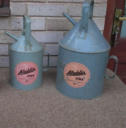
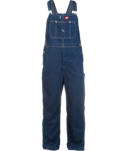



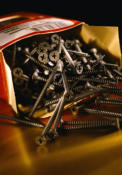


https://www.youtube.com/

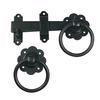




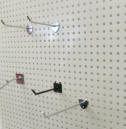


Thames Van but in Red
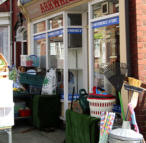
https://www.youtube.com/















